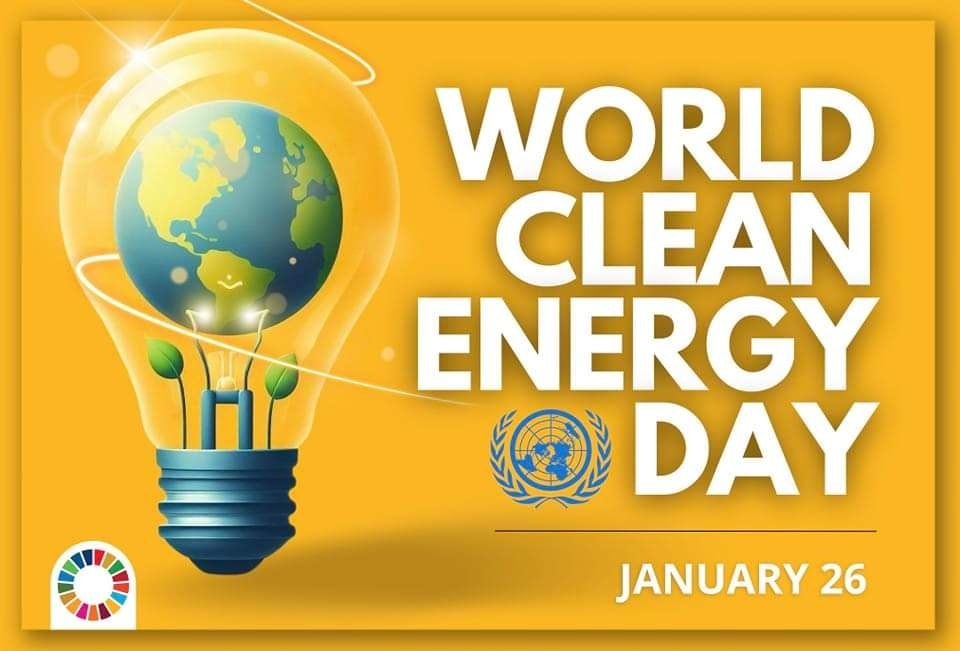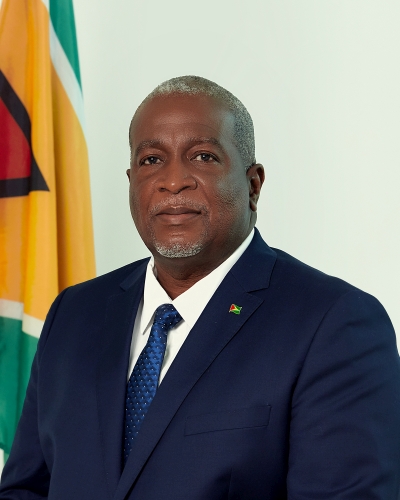
Clean energy plays a pivotal role in Guyana’s energy transformation and long-term sustainability goals. It is fundamental to our environmental, social, economic, and human development, and our everyday life depends on access to energy sources across all sectors of our society.
The Government of Guyana has adopted robust policies, cost-effective technologies and energy-efficient solutions with the aim of providing Guyanese with equitable and affordable access to clean and renewable energy while reducing the use of imported fossil fuels countrywide.
These measures form our national strategy to decouple economic growth from using fossil fuels to generate electricity and develop our low-carbon energy resources to meet growing energy demands.
At the same time, Guyana remains on course of its clean energy transition with the continuous expansion of renewable energy projects geared to transform the energy sector under the Low Carbon Development Strategy (LCDS) 2030.

Guyana joins the United Nations and global community on International Day of Clean Energy to advance conversations on alternative sources of energy and the global call to protect our planet, homes, and our imminent future.
As the world grapples with the harmful impacts of rising greenhouse gas emissions that pose considerable risks to humanity and the environment, the time for climate-resilient action is now. We need to mobilise actions and raise awareness on the universal transition to clean energy as a catalyst for bolstering energy security, fostering socio-economic growth, and promoting environmental sustainability.
The Government of Guyana has taken urgent action to drive the clean energy transition, backed by ambitious national policy and climate-resilient strategies that foster the provision of affordable, reliable, and sustainable clean energy solutions.
Guyana has an abundance of natural resources that must be considerably harnessed in an economically, environmentally, and socially sustainable way. Through the LCDS 2030, Guyana is employing rigorous efforts to prioritise innovative clean energy solutions using its natural resources for national benefit.
The Government aims to incorporate a mix of clean and renewable energy – solar, hydro, wind, and natural gas energy resources to meet the country’s energy needs over the next five years. It is envisioned that this plan will help to add more than 500 megawatts (MW) of electricity capacity for residential and commercial users that can contribute to a fifty per cent reduction in electricity costs.
Guyana’s transformative energy initiatives include the installation of a 300MW natural gas to energy power plant, a cleaner energy source, to reduce the country’s current dependence on more polluting energy sources like heavy fuel oil and diesel for power generation. Natural gas will provide an important transition as the country develops its hydropower potential, commencing with the 165MW Amaila Falls Hydropower Project (AFHP) that aims to generate cheaper and cleaner energy for all Guyanese and support the massive expansion of renewable energy in the national grid. The country’s electric utility will also be adding 33MW of utility scale solar power to further decarbonize the power sector.
Under national renewable energy projects such as the Solar Home System Project, there are wide-scale electrification operations in Hinterland communities. The distribution of 30,000 160-watt solar photovoltaic (PV) systems is nearly completed and will benefit close to 140,000 persons in over 240 communities at the end of this project.
There are additional investments to advance access to renewable energy in Hinterland communities, with Guyana currently implementing a number of small hydropower projects at Kato, Kumu and Moco Moco.
Between 2020 to 2023, the Government has increased its investment in solar PV technology including two utility-scale solar PV farms and 31 solar mini-grids. Among our renewable energy progress, there have also been investments in grid upgrades, rooftop and off-grid solar PV systems aimed at accommodating an increase in solar capacity to more than 14 megawatts.
Guyana’s energy sector transformation has also supported the development of the electric mobility industry. The country has six (6) newly installed electric vehicle charging facilities that aim to promote alternative energy sources in the transportation sector and encourage investments in more environmentally friendly vehicles. As part of fiscal measures, the Government removed the 14 percent VAT on electric motor vehicles less than four years old (not hybrid) of any power rating and mandated an increase in the writing down allowance applicable to all-electric motor vehicles to 50 per cent annually.
These critical measures are envisioned to encourage more households and businesses to consider sustainable mobility options and environmentally friendly vehicles that help reduce greenhouse gas emissions and contribute to a cleaner environment.
Guyana continues to engage and work in partnership with multiple energy and cross-sector stakeholders to roll out clean and renewable energy initiatives, adapt to the challenges posed by climate change and encourage sustainable energy-efficient lifestyles among Guyanese, while building capacity to facilitate the requisite technical and regulatory support for effective clean energy transitions.
Our country remains dedicated to advancing global efforts to address climate change and transition to clean energy for the benefit of all Guyanese. On International Day of Clean Energy, we recognise as a nation that significant progress has been made in accelerating clean and renewable energy access, and we are committed to working towards achieving a low-carbon economy.
